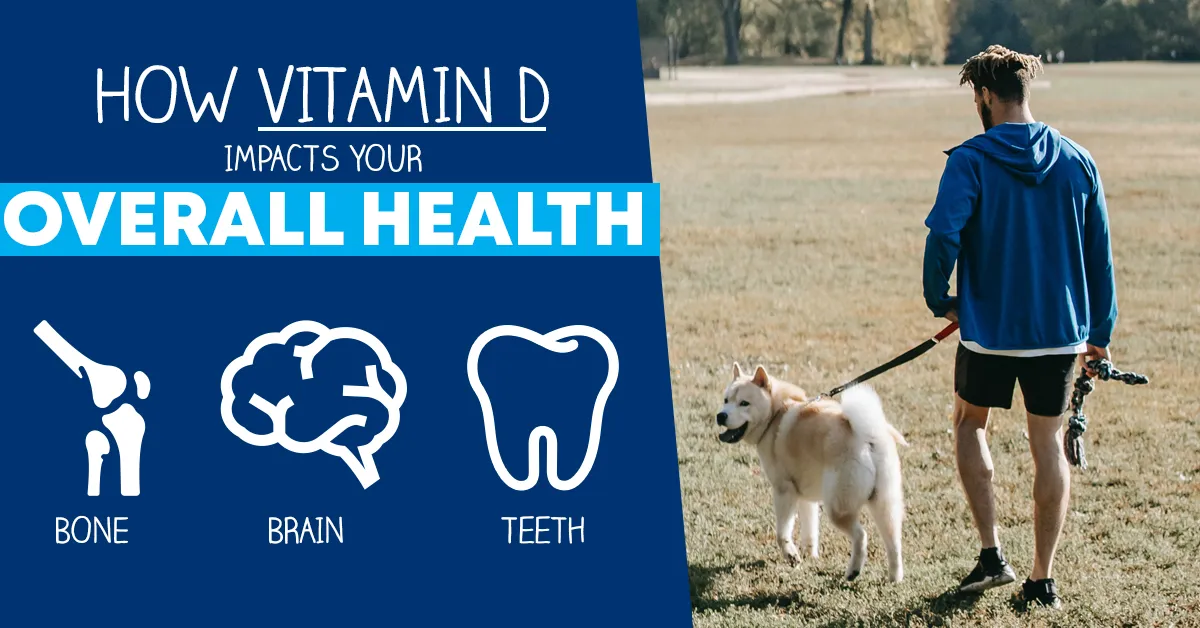As Fall turns to Winter, many of us shift towards spending more time indoors. This change is brought on by the cooling temperatures and a decreasing amount of daylight.
For many Americans, particularly those in the upper midwest, this means a decrease in vitamin D absorption since vitamin D most commonly comes from the sun. While vitamin D is present in certain foods, it is a common nutrient deficiency, particularly a seasonal one, because of the shift in sunlight exposure.
Pay special attention to your vitamin D during the winter in case you find that you need to supplement your vitamin D intake.
How Does Vitamin D Support Bones?
The most popularized benefit of vitamin D is its ability to support bone health. Vitamin D is crucial to helping your body absorb calcium.
Children who consume an adequate amount of calcium during their childhood will often develop higher bone mass as adults, compared to children who consume less than the recommended amount of calcium. Vitamin D plays a key role in facilitating this.
Your risk of weak or brittle bones increases with age. This is partially why the recommended amount of daily vitamin D increases with age (600 IU, increasing to 800 IU per day after age 70).
How Does Vitamin D Support Your Brain?
Vitamin D plays a role in brain function, which is another reason why it is important for older adults. While studies on the connection are still quite new, it is believed that Vitamin D may slow cognitive decline.
Researchers found that vitamin D was present in brain tissue, and those studied who had higher amounts of vitamin D in their brain tissue also reported higher cognitive function.
Vitamin D also aids in clearing out molecules from the brain that have been associated with causing Alzheimer’s.
How Does Vitamin D Support Your Heart?
Adults with higher vitamin D intake have been observed to have a lower risk of cardiovascular disease. But this may just be an ironic correlation.
We could theorize that adults that exercise more (and thus have a lower risk of cardiovascular disease) also spend more time outside – thus absorbing more vitamin D. Additionally, those that eat a healthy diet, likely intake more vitamin D via their food (so they do not rely exclusively on the sun) and thus have a lower risk of cardiovascular disease via diet.
So while the American Heart Association says there was a lot of buzz around vitamin D’s support of your heart initially, further research has largely caused this sentiment to fade.
How Do I Know If I Am Deficient in Vitamin D?
Blood tests can help you identify what nutrients you are deficient in (including vitamin D). The University of Nebraska lists the following symptoms as possible signs that you are deficient in vitamin D:
– Fatigue
– Not sleeping well
– Bone pain or achiness
– Depression or feelings of sadness
– Hair loss
– Muscle weakness
– Loss of appetite
– Getting sick more easily
– Pale skin


